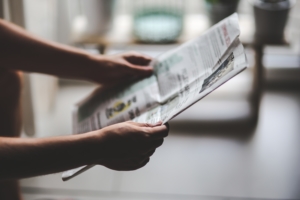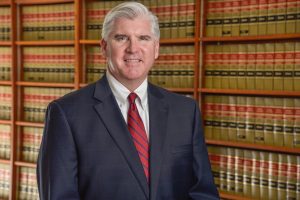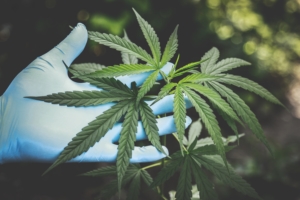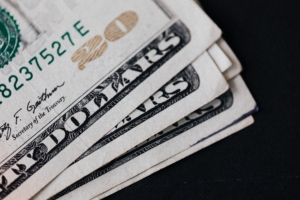
The attorneys at Nolan Heller Kauffman LLP understand that many businesses in the hospitality industry have been negatively impacted by COVID-19. We are here to help you navigate both the financial and regulatory compliance aspect of keeping your business during this difficult time.
If your New York licensed business has been charged with violations of the COVID-19 or other regulations, or if you are interested in ensuring that your business is fully compliant with these regulations and with the terms of your license, please contact Alexandra B. Becker, Esq. by email (abecker@nhkllp.com) or phone (518.432.3188).
Task Force Crackdown:
On July 23, 2020, Governor Cuomo announced a new multi-agency New York State task force to enforce COVID-19-related regulations at licensed establishments, including bars and restaurants. The task force is led by the New York State Police and New York State Liquor Authority (“SLA”) Chairman Vincent Bradley and will include investigators from:
The goal of the task force is to ensure that all licensed establishments are fully complying with the State’s rules regarding COVID-19, including but not limited to enforcement of social distancing measures, proper use of face coverings, and the prohibition on indoor dining and alcohol consumption (for the New York City area).
Licensed establishments found in violation of COVID-19 regulations face fines up to $10,000 per violation. Egregious violations may result in the immediate suspension of a bar or restaurant’s liquor license.
Between July 21 and 23, the task force conducted over 1,000 compliance checks, which resulted in documented violations at 84 establishments, and 10 liquor licenses being suspended. Between July 25 and 26, the task force conducted over 1,300 additional compliance checks, documenting violations at 132 establishments, leading to 12 further summary suspensions. An additional 644 compliance checks were completed Monday night, with investigators observing 26 violations in New York City.
Since the start of the pandemic, the New York State Liquor Authority has brought 443 charges against licensees statewide and imposed 33 Emergency Orders of Suspension, immediately closing establishments in order to protect public health and safety. A frequently updated list of licensees who have been charged and/or summarily suspended is posted on the New York State Liquor Authority’s website: www.sla.ny.gov.
NYS Liquor License Food Requirements:
Pursuant to Executive Order 202.52, effective Friday July 17, 2020, all licensed establishments with on-premises privileges (e.g. restaurants, taverns, manufacturers with tasting rooms, etc.) cannot serve alcoholic beverages unless such alcoholic beverage is accompanied by the purchase of a food item which is consistent with the food availability requirement of the license under the Alcoholic Beverage Control Law.
Under normal (pre-COVID-19) circumstances, any on-premises licensee is required to have some degree of food available for purchase at their premises. The type of food required is dependent on the type of license. Restaurants have the most extensive food requirements, and must offer “meals”, defined as “ the usual assortment of foods commonly ordered at various hours of the day”. Taverns and manufacturers with tasting rooms are permitted to offer a more limited scope of food options. Under pre-COVID rules, all licensees were required to have food available, but patrons were not required to purchase food in conjunction with a purchase of alcohol.
The Executive Order is aimed at permitting outside and limited indoor dining (outside of New York City and Long Island), with alcoholic beverages, while restricting the congregating and mingling that arise in a bar service/drinking only environment. The Order provides : “for each patron in a seated party, an item of food must be purchased at the same time as the purchase of the initial alcoholic beverage(s) . . . However, one or more shareable food item(s) may be purchased, so long as it/they would sufficiently serve the number of people in the party and each item would individually meet the food standard below.”
The New York State Liquor Authority has provided additional guidance as to the standards of food required:
For Manufacturers with On-Premises Service Privileges: sandwiches, soups or other such foods, whether fresh, processed, pre-cooked or frozen; and/or food items intended to compliment the tasting of alcoholic beverages, which shall mean a diversified selection of food that is ordinarily consumed without the use of tableware and can be conveniently consumed, including but not limited to: cheese, fruits, vegetables, chocolates, breads, mustards and crackers.
For On-Premises Retailers with a Food Availability Requirement, Including Restaurants and Taverns: sandwiches, soups or other foods, whether fresh, processed, precooked or frozen.
The guidance further clarifies that for restaurants and taverns, “other foods” are “foods similar in quality and substance to sandwiches and soups; for example, salads, wings, or hotdogs” are considered acceptable’ whereas; “a bag of chips bowl of nuts, or candy alone are not.” Further, that dessert-type items can satisfy this requirement, as long as it is a “substantial item, such as a piece of cake/pie, an ice cream sundae, etc.” as opposed to a “drink with whip cream, a cookie, a piece of candy, etc.”
Patrons are not required to purchase a food item with each alcoholic beverage purchase. So long as food is ordered at the time of initial order of any alcoholic beverages that is sufficient in substance and is also of a quantity sufficient to serve the number of patrons who are present and being served alcohol.
Ongoing Efforts to Mitigate COVID-19 Impact on Licensees:
On March 16, 2020, in response to the COVID-19 crisis, Governor Cuomo issued a statewide mandate that restaurants operate only for takeout and delivery, causing many of those businesses to experience huge losses of revenue. In order to help those impacted businesses, the New York State Liquor Authority issued a series of directives aimed to ease the restrictions on operations and financial obligations of businesses licensed to serve alcohol.
Normally, on-premises licensees (restaurants, bars, taverns, clubs, arenas, catering establishments, etc.) are only permitted to sell alcohol for consumption on their licensed premises, with the exception of takeout beer. In order to boost revenues, the SLA is temporarily allowing on-premises licensees to sell wine and spirits- in addition to beer- by the bottle for takeout and delivery in conjunction with a food sale. The sale of mixed drinks for takeout or delivery in conjunction with a food sale is also permitted so long as they are in closed containers consistent with any open container ordinance. Licensees do not need to obtain any waiver or permission from the SLA in order to make such sales. These off-premises sales privileges have been extended multiple times, and currently run through August 5, 2020.
The New York State Liquor Authority has also extended its deferment of liquor license renewal fees through August 31, 2020, which will allow on-premises licensees, wholesalers, and manufacturers with licenses expiring between March 31, 2020 and July 31, 2020 to defer the submission of renewal payments until August 31, 2020. Licensees are still required to file their applications prior to their expiration date, despite not having to submit a renewal payment.
Each of these Advisories and temporary procedures are subject to further changes and/or extensions as the State Liquor Authority continues to evaluate the scope and status of the COVID-19 crisis and its impact on New York State licensed businesses.
The New York State Liquor Authority is continuing to process and review applications during this time, though Full Board Meetings are not open to the public. Any presentation in support or opposition of licensing and miscellaneous matters must be submitted via email by the date set forth in the notice (as is the current practice) and no appearances or other submissions will be permitted. All licensing applicants can request to have their application held in abeyance until normal Full Board Meetings resume.
How We Can Help:
We appreciate that maintaining compliance with the requirements of your liquor license, as well as with the ever-evolving COVID-19 restrictions is extremely difficult, and urge you to contact us to see how we may be able to assist you. Please contact Alexandra B. Becker, Esq. by email (abecker@nhkllp.com) or phone (518.432.3188).







FOLLOW US